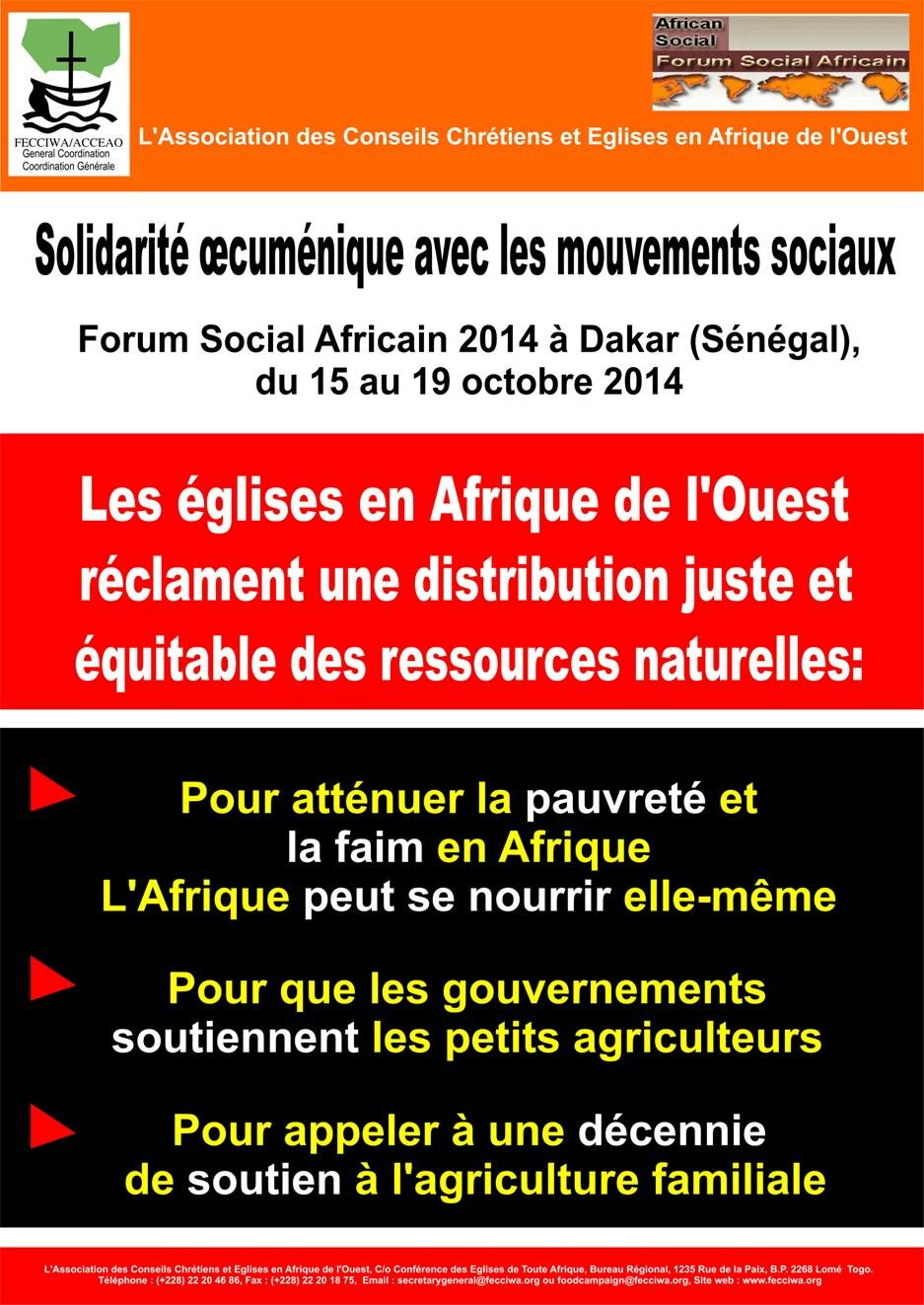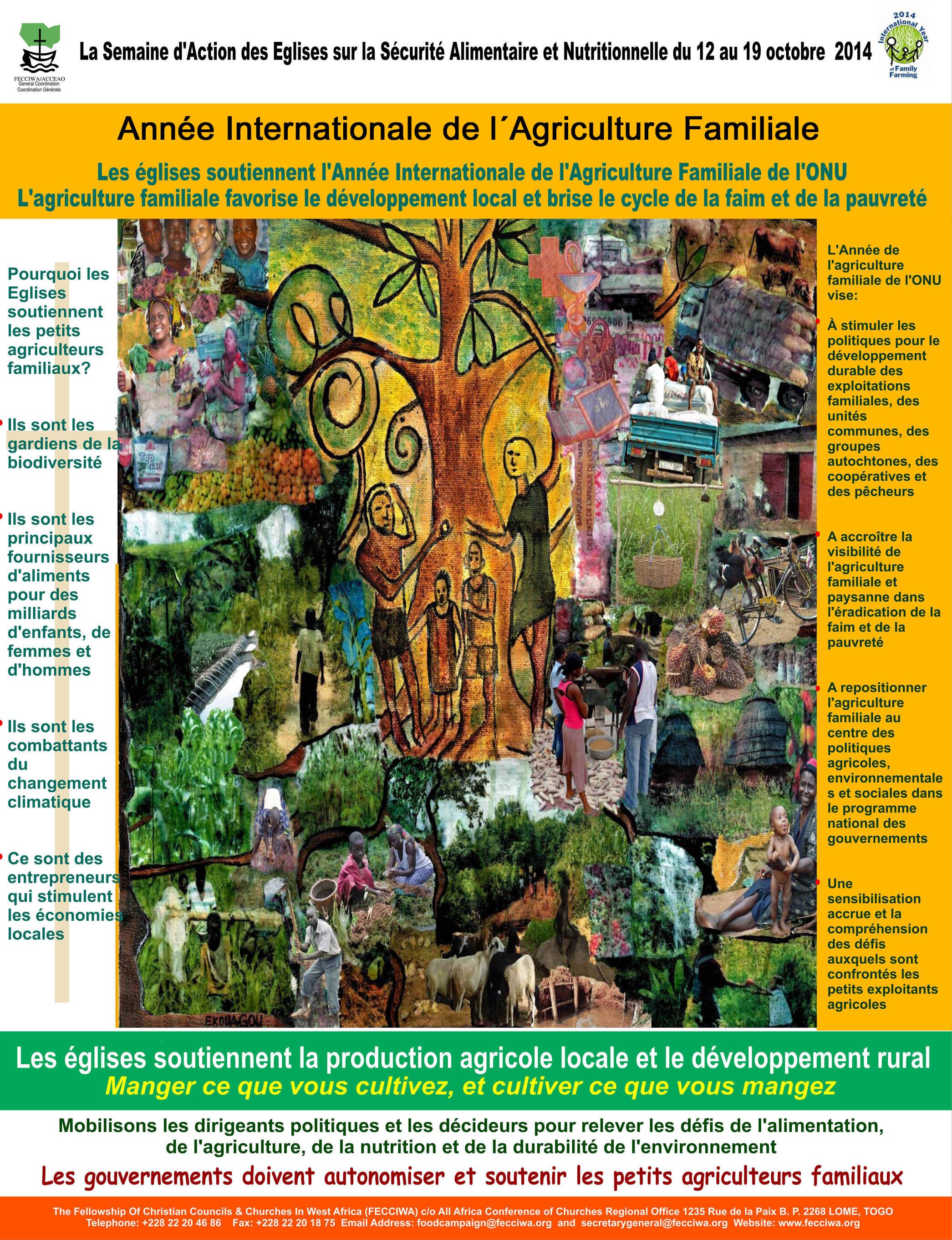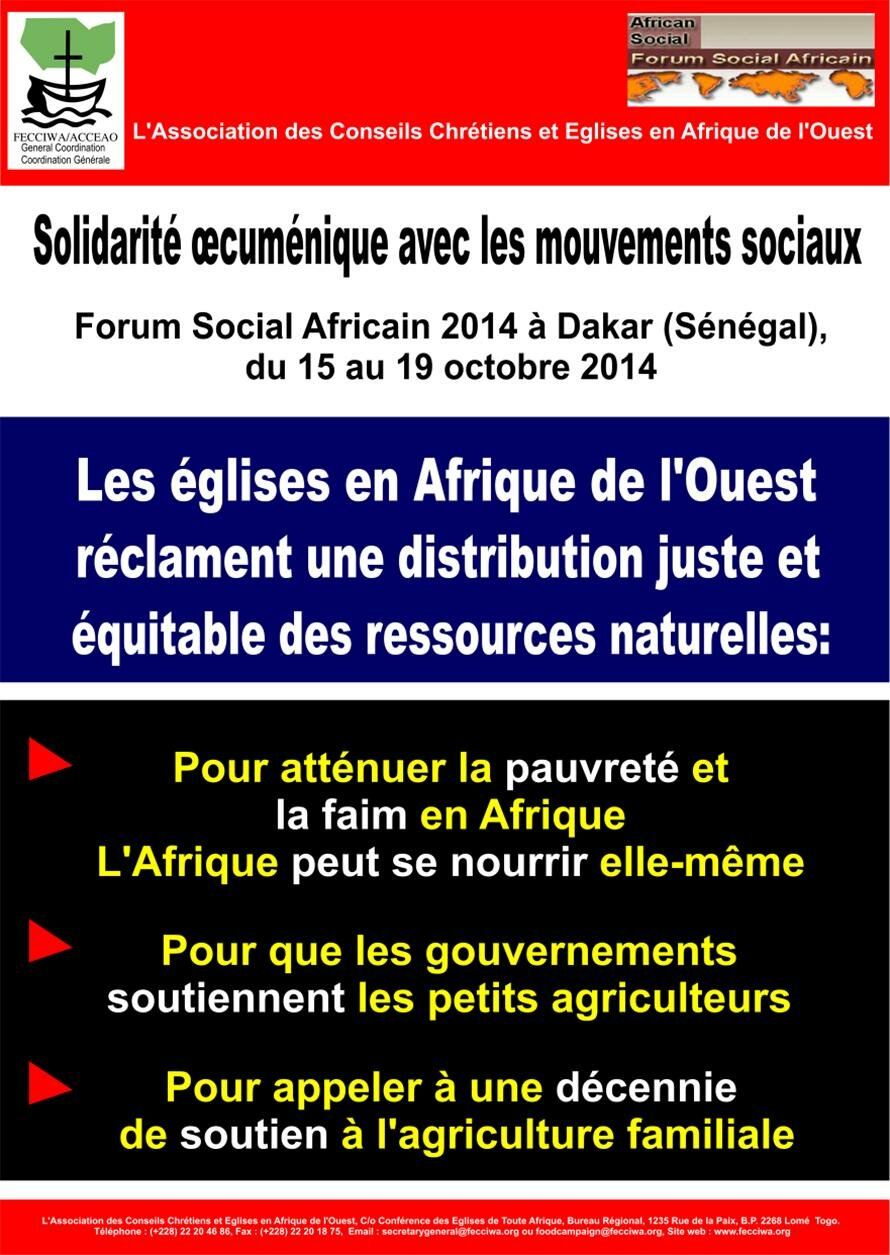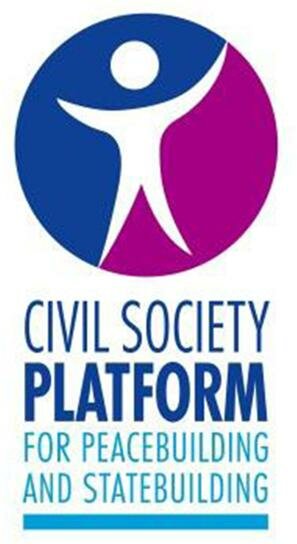West African Churches Call On Political Leaders To Move Away From Rhetoric To Stimulate Long – Term Economic Growth To Save Humanity
Brussels 03/04/2014: At the margins of the EU-Africa Partnership Summit of Heads of States and Governments, held from 2nd – 3rd April in Brussels, West African Church leaders called on delegates to formulate policies that deliver values of democracy, respect for human rights, good government as well as the right to development.
They made an open call to the leaders of the European Union and the African Union to move away from the motive of profit and greed and restart the Economic Partnership Agreements negotiations for a sustainable EU-Africa relation.
“Investing in People, Prosperity and Peace” was a slogan at the largest ever EU – Africa Partnership Summit with over 90 delegations of heads of States and governments. The first EU – Africa Summit took place in 2000 in Cairo, again followed by a third summit in Tripoli in 2010.
At the fourth EU – Africa Partnership Summit, European hosts tried to keep the ongoing Economic Partnership Agreements (EPAs) negotiations for trade integration off the agenda. The aim of the host continent was to prevent significant disagreements from recurring like that of the second EU – Africa Partnership Summit held in Lisbon in 2007. Just four days before the 2014 Summit, Heads of States and Governments of the Economic Community of West African States (ECOWAS) surprised the European Union Commission by putting a moratorium on the EPA negotiations on March 31 in Yamoussoukro for two additional months. Addressing dozens of civil society members attending an EPA seminar in Brussels at the sideline of the summit, Rev. Dr. Tolbert Jallah, Jr., Secretary General, of the Fellowship of Christian Councils and Churches in West Africa (FECCIWA) said “that it is time to move away from political rhetorics to action to save humanity. He further argued that “solutions for economic and social development for Africa can no longer come from the exterior”. Looking closely at the 2014 summit, Dr. Jallah questioned the non inclusion of EPAs on the agenda; and said that “Europe cannot be the largest trade, investment and development partner of Africa through an Economic Partnership Agreements that will undermine Africa’s political development and economic stability.” Dr. Jallah led a three person ecumenical delegation from the churches in West Africa to Brussels to meet with Parliamentarians, representatives of the EU Trade Commission and the Europe External Action Service in order to emphasize concerns expressed by ECOWAS Heads of States with Nigeria being the lead protagonist.
It could be recalled that the EU commission tried to seal in the trade deal, by sidelining civil society and national level experts in Dakar, Senegal in late January 2014. However, after a decade of deadlock in the negotiations, West African Churches also rejected the EPAs deal signed in Dakar and warned that any deal signed behind closed doors without public participation was unacceptable. Dr. Jallah called on the European Union Commission and the ECOWAS Commission to acknowledge and respect Nigeria’s role as economic powerhouse in the region, contributing 70% to the Community levy of the ECOWAS. He repeated the call that “West African sub – region needs sufficient time for national level consultation and impact assessments”.
Commenting on the final outcome of the Summit, Rev Dr. Jallah analyzed the opening speech of Mr. Harmen Van Rompuy, President of the Council of Europe. Mr. Rompuy acknowledged the need for greater cooperation between the two continents and urged the summit “Make no mistake: there are things on which Europe needs Africa’s help. We need your help to tackle climate change, which threatens all of us; to manage migration so that it benefits both of us; and to improve the security of both continents. Dr. Jallah questioned Mr. Rompuy on why he was short of words on defining the root causes of migration and climate change? Mr. Rompuy forgot to mention the failure of world leaders to live up their responsibilities and take concrete action to curtail the devastating impact of climate change on poor communities, livelihoods, especially those in Africa. The summit failed to address migration and climate change. Rev. Dr. Jallah emphasized: “today, more than ever, we need responsible and coherent EU – Africa trade and development cooperation in order to prevent further hardship and exodus of our people from their heritage. More efforts must be streamlined on developing local economies and establishing industrial clusters around agriculture for social cohesion and stability.
Also, focusing on the outcome document of the summit, Dr. Jallah said “the EPAs only reappeared in the final declaration where Heads of States alluded to alleged progress made in trade talks for deeper economic integration; but it is far from the reality! Faith leaders and Civil Society will monitor and hold Heads of States accountable, who have reinforced their commitment to explore modalities on the implementation of trade agreements and their implications for Africa’s regional integration and industrial development agenda. The partnership discourse needs to be approved by real actions and faithful commitment today. In this light, churches again joined CSOs to call for the reopening of the trade negotiation and allot appropriate time for national level consultations.
After ten years of difficult negotiations, the European Union and ECOWAS commission signed an agreement of understanding on contentious issues in February 2014 in order to conclude EPA negotiations along an unrealistic time line in favor of the European Union. Churches and civil society organizations have expressed dissatisfaction with the hasty progress and terms of the agreement, which will impact negatively on state budgets, economic trade policy instruments and third country relations of African states with emerging economies such as China, Brazil or India. Trade Experts and Faith Leaders in Brussels questioned, whether the EU-imposed deadline allows for effective accommodation of development concerns of all ECOWAS member states and Mauritania, whereas of these 16 countries, 13 counts are least developed countries.
| < Prev | Next > |
|---|







